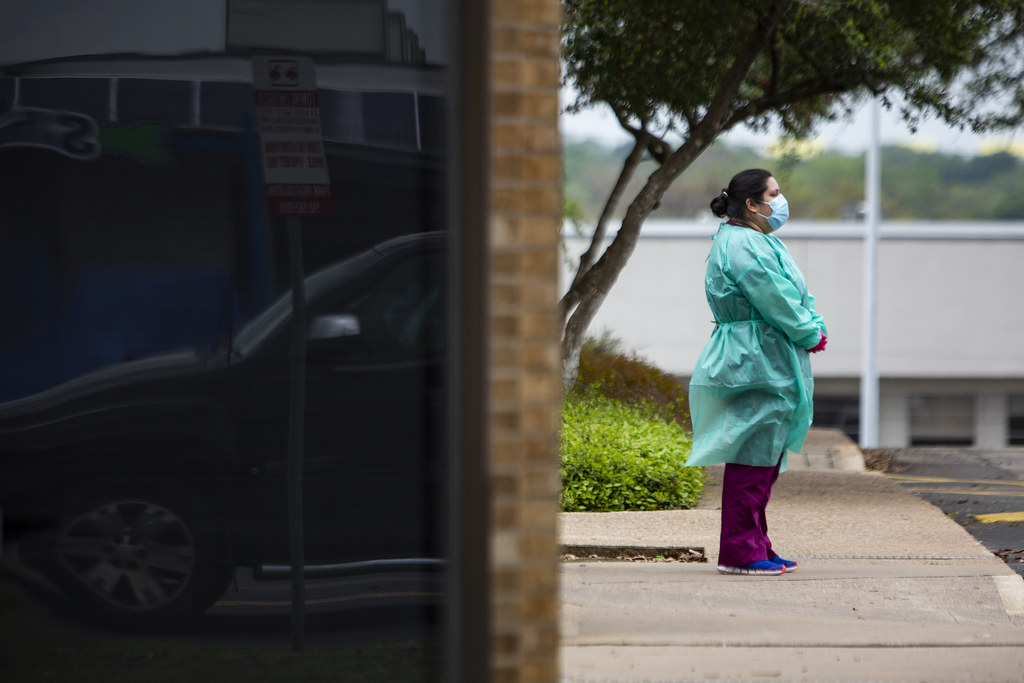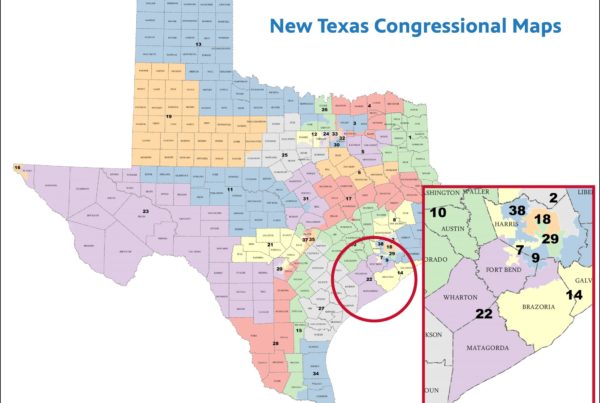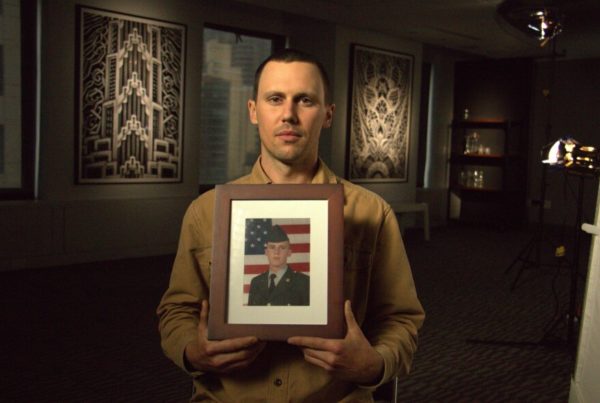The pandemic has been tough on many health care workers, especially nurses. Nurses have been called to action during a seemingly endless cycle of COVID-19 surges. And many have left their jobs because of burnout. Texas now has thousands of unfilled nursing positions.
But a new Doctor of Nursing Practice degree program at Texas A&M University means some nurses could find the career change they’re looking for without having to leave the profession altogether. Texas Standard spoke to the dean of A&M’s College of Nursing, Nancy Fahrenwald, to learn more about the program and what effect it may have on Texas’ health care workforce. Listen to the interview in the audio player above or read the transcript below.
This interview has been edited lightly for clarity.
Texas Standard: Tell us more about the program – is it a PhD program or something else?
Nancy Fahrenwald: So this doctoral program is a DNP, or Doctor of Nursing Practice, which is the clinical doctorate in nursing.
Is this a three-, four- or five-year degree program? What does the process look like?
So the first, this launch of this program will be for nurses who already have a master’s degree in nursing to return to school to earn the DNP. It will be a part-time program because they are people who are licensed practitioners already. We anticipate that will take them five semesters.
How this will affect the issue of nursing shortages that we’ve been reading and hearing so much about? Will this program help that issue in any way?
Anything that we can do to create opportunities for nurses to advance their education is a good thing. It’s a good thing for the people who they provide care for, but it’s good for the nursing workforce. We need more nursing faculty. And in the state of Texas, like most states across the nation, a master’s degree or a doctoral degree in the field is required to be a faculty member. The greatest challenges with the nursing shortage nationwide right now are are two things: shortage of faculty and clinical placements.
Since you are an academic and a practicing nurse with a lot of experience, do you see any downsides to a lack of in-person training for this degree?
We’ve done this work online for many years; it’s not new to us. But what the pandemic does is it gave us some new tools or required us to adopt some new tools, like virtual simulation at the undergraduate level, to even further enhance our distance education.
What are you looking for in prospective students? Are there any special outreach efforts, perhaps to find nurses who hadn’t thought about pursuing a higher degree?
We’re looking for people who have a vision of making a difference in their career and a career trajectory ahead of them. And of course, we remain committed and focused on rural and underserved areas and diversity recruitment.
We heard last week that the Biden administration announced its vaccination rules for health care workers. Do you have any sense that rules like these could drive more nurses to seek out programs like yours and get out of the hospital or clinic setting?
Well, certainly a vaccine requirement is not a motivator for people applying for an educational program to advance their nursing degree. We haven’t seen that we just did admissions. But it’s the opportunities that the advanced degree opens up that drives students to our door.














